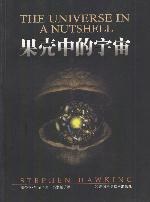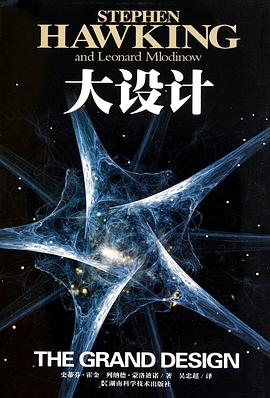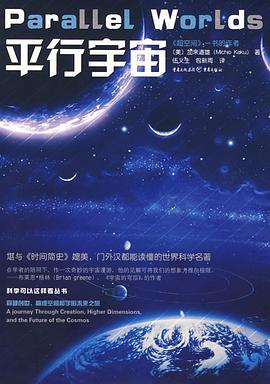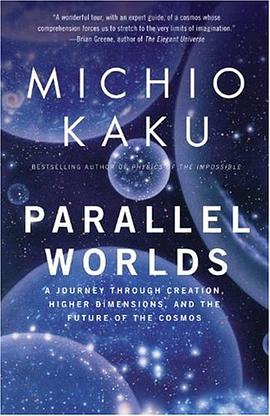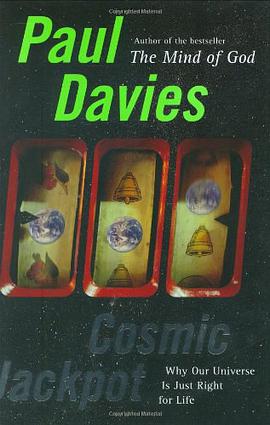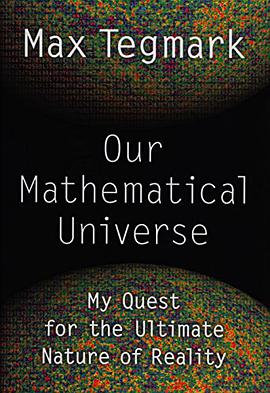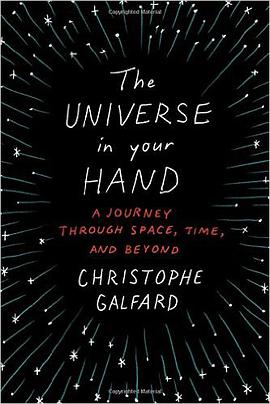宇宙
大设计 豆瓣
The Grand Design
7.6 (29 个评分)
作者:
[美国] 列纳德·蒙洛迪诺
/
[英] 史蒂芬·霍金
译者:
吴忠超
湖南科学技术出版社
2011
- 1
宇宙何时并如何起始?我们为何在此?为何是有非无?何为实在本性?为何自然定律被这么精细地调谐至让我们这样的生命存在?以及最后,我们宇宙的表观“大设计”能否证实使事物运行的仁慈的造物主?科学能否提供另一种解释?
有关宇宙起源以及生命本身的最基本的问题,曾经为哲学的范围,现在占据着科学家、哲学家和神学家相遇但却自说自话的领地。在霍金和蒙洛迪诺的新书中,他们以精彩简朴的非专业语言表述有关宇宙奥秘的最新的科学思考。
他们在《大设计》中解释,根据量子论,宇宙不仅具有单独的存在或历史,而且同时存在每种可能的历史。把这种思想应用于宇宙整体,就对因果概念本身提出疑问。然而,霍金和蒙洛迪诺描述的“从顶到底”的宇宙学方法会说,过去没有采取确定的形式这一事实意味着,我们因观察历史而创造历史,而非历史创造我们。作者进一步解释,我们自身是宇宙极早期的量子涨落的产物,并且展现量子论如何预言“多宇宙”——该思想是说,我们的宇宙只不过是自发地从无中出现的许多宇宙中的一个,每个宇宙具有不同的自然定律。
霍金和蒙洛迪诺在这过程中诘问实在的传统概念,提出“依赖模型”的实在论,这是我们能够希望找到的最佳答案。他们以对M理论的精彩评价来结束全书,M理论解释了制约我们和我们宇宙的定律,它还是完备的“万物理论”的目前可行的仅有候选者。他们写道,如果被证实的话,它将是爱因斯坦寻求的统一理论,也是人类理性的终极胜利。
这是一部简洁的惊人的附有大量插图的指南,导向正在改变我们的宇宙观并危及我们最神圣的信仰系统的一些发现。没有任何一本书像《大设计》这样信息丰富,这样刺激。
有关宇宙起源以及生命本身的最基本的问题,曾经为哲学的范围,现在占据着科学家、哲学家和神学家相遇但却自说自话的领地。在霍金和蒙洛迪诺的新书中,他们以精彩简朴的非专业语言表述有关宇宙奥秘的最新的科学思考。
他们在《大设计》中解释,根据量子论,宇宙不仅具有单独的存在或历史,而且同时存在每种可能的历史。把这种思想应用于宇宙整体,就对因果概念本身提出疑问。然而,霍金和蒙洛迪诺描述的“从顶到底”的宇宙学方法会说,过去没有采取确定的形式这一事实意味着,我们因观察历史而创造历史,而非历史创造我们。作者进一步解释,我们自身是宇宙极早期的量子涨落的产物,并且展现量子论如何预言“多宇宙”——该思想是说,我们的宇宙只不过是自发地从无中出现的许多宇宙中的一个,每个宇宙具有不同的自然定律。
霍金和蒙洛迪诺在这过程中诘问实在的传统概念,提出“依赖模型”的实在论,这是我们能够希望找到的最佳答案。他们以对M理论的精彩评价来结束全书,M理论解释了制约我们和我们宇宙的定律,它还是完备的“万物理论”的目前可行的仅有候选者。他们写道,如果被证实的话,它将是爱因斯坦寻求的统一理论,也是人类理性的终极胜利。
这是一部简洁的惊人的附有大量插图的指南,导向正在改变我们的宇宙观并危及我们最神圣的信仰系统的一些发现。没有任何一本书像《大设计》这样信息丰富,这样刺激。
Parallel Worlds 豆瓣
作者:
Michio Kaku
Anchor
2006
- 2
In this thrilling journey into the mysteries of our cosmos, bestselling author Michio Kaku takes us on a dizzying ride to explore black holes and time machines, multidimensional space and, most tantalizing of all, the possibility that parallel universes may lay alongside our own.
Kaku skillfully guides us through the latest innovations in string theory and its latest iteration, M-theory, which posits that our universe may be just one in an endless multiverse, a singular bubble floating in a sea of infinite bubble universes. If M-theory is proven correct, we may perhaps finally find answer to the question, “What happened before the big bang?” This is an exciting and unforgettable introduction into the new cutting-edge theories of physics and cosmology from one of the pre-eminent voices in the field.
Kaku skillfully guides us through the latest innovations in string theory and its latest iteration, M-theory, which posits that our universe may be just one in an endless multiverse, a singular bubble floating in a sea of infinite bubble universes. If M-theory is proven correct, we may perhaps finally find answer to the question, “What happened before the big bang?” This is an exciting and unforgettable introduction into the new cutting-edge theories of physics and cosmology from one of the pre-eminent voices in the field.
Cosmic Jackpot 豆瓣
作者:
Paul Davies
Houghton Mifflin Harcourt
2007
- 4
Cosmic Jackpot is Paul Davies's eagerly awaited return to cosmology, the successor to his critically acclaimed bestseller The Mind of God. Here he tackles all the "big questions," including the biggest of them all: Why does the universe seem so well adapted for life? In his characteristically clear and elegant style, Davies shows how recent scientific discoveries point to a perplexing fact: many different aspects of the cosmos, from the properties of the humble carbon atom to the speed of light, seem tailor-made to produce life. A radical new theory says it's because our universe is just one of an infinite number of universes, each one slightly different. Our universe is bio-friendly by accident -- we just happened to win the cosmic jackpot. While this "multiverse" theory is compelling, it has bizarre implications, such as the existence of infinite copies of each of us and Matrix-like simulated universes. And it still leaves a lot unexplained. Davies believes there's a more satisfying solution to the problem of existence: the observations we make today could help shape the nature of reality in the remote past. If this is true, then life -- and, ultimately, consciousness -- aren't just incidental byproducts of nature, but central players in the evolution of the universe. Whether he's elucidating dark matter or dark energy, M-theory or the multiverse, Davies brings the leading edge of science into sharp focus, provoking us to think about the cosmos and our place within it in new and thrilling ways.
Our Mathematical Universe 豆瓣
作者:
Max Tegmark
Knopf
2014
- 1
Max Tegmark leads us on an astonishing journey through past, present and future, and through the physics, astronomy and mathematics that are the foundation of his work, most particularly his hypothesis that our physical reality is a mathematical structure and his theory of the ultimate multiverse. In a dazzling combination of both popular and groundbreaking science, he not only helps us grasp his often mind-boggling theories, but he also shares with us some of the often surprising triumphs and disappointments that have shaped his life as a scientist. Fascinating from first to last—this is a book that has already prompted the attention and admiration of some of the most prominent scientists and mathematicians.
“Tegmark offers a fascinating exploration of multiverse theories, each one offering new ways to explain ‘quantum weirdness’ and other mysteries that have plagued physicists, culminating in the idea that our physical world is ‘a giant mathematical object’ shaped by geometry and symmetry. Tegmark’s writing is lucid, enthusiastic, and outright entertaining, a thoroughly accessible discussion leavened with anecdotes and the pure joy of a scientist at work.” —Publishers Weekly (starred review)
“Lively and lucid, the narrative invites general readers into debates over computer models for brain function, over scientific explanations of consciousness, and over prospects for finding advanced life in other galaxies. Though he reflects soberly on the perils of nuclear war and of hostile artificial intelligence, Tegmark concludes with a bracingly upbeat call for scientifically minded activists who recognize a rare opportunity to make our special planet a force for cosmic progress. An exhilarating adventure for bold readers.” —Bryce Cristensen, Booklist (starred review)
“Our Mathematical Universe boldly confronts one of the deepest questions at the fertile interface of physics and philosophy: why is mathematics so spectacularly successful at describing the cosmos? Through lively writing and wonderfully accessible explanations, Max Tegmark—one of the world’s leading theoretical physicists—guides the reader to a possible answer, and reveals how, if it’s right, our understanding of reality itself would be radically altered.” —Brian Greene, physicist, author of The Elegant Universe and The Hidden Reality
“Daring, Radical. Innovative. A game changer. If Dr. Tegmark is correct, this represents a paradigm shift in the relationship between physics and mathematics, forcing us to rewrite our textbooks. A must read for anyone deeply concerned about our universe.” —Michio Kaku, author of Physics of the Future
“Tegmark offers a fresh and fascinating perspective on the fabric of physical reality and life itself. He helps us see ourselves in a cosmic context that highlights the grand opportunities for the future of life in our universe.” —Ray Kurzweil, author of The Singularity is Near
“Readers of varied backgrounds will enjoy this book. Almost anyone will find something to learn here, much to ponder, and perhaps something to disagree with.” —Prof. Edward Witten, physicist, Fields Medalist & Milner Laureate
“This inspirational book written by a true expert presents an explosive mixture of physics, mathematics and philosophy which may alter your views on reality.” —Prof. Andrei Linde, physicist, Gruber & Milner Laureate for development of inflationary cosmology
“Galileo famously said that the universe is written in the language of mathematics. Now Max Tegmark says that the universe IS mathematics. You don’t have to necessarily agree, to enjoy this fascinating journey into the nature of reality.” —Prof. Mario Livio, astrophysicist, author of Brilliant Blunders and Is God a Mathematician?
“Scientists and lay aficionados alike will find Tegmark’s book packed with information and very thought provoking. You may recoil from his thesis, but nearly every page will make you wish you could debate the issues face-to-face with him.” —Prof. Julian Barbour, physicist, author of The End of Time
“In Our Mathematical Universe, renowned cosmologist Max Tegmark takes us on a whirlwind tour of the universe, past, present—and other. With lucid language and clear examples, Tegmark provides us with the master measure of not only of our cosmos, but of all possible universes. The universe may be lonely, but it is not alone.” —Prof. Seth Lloyd, Professor of quantum mechanical engineering, MIT, author of Programming the Universe
“A lucid, engaging account of the various many-universes theories of fundamental physics that are currently being considered, from the multiverse of quantum theory to Tegmark’s own grand vision.” —Prof. David Deutsch, physicist, Dirac Laureate for pioneering quantum computing
“Tegmark offers a fascinating exploration of multiverse theories, each one offering new ways to explain ‘quantum weirdness’ and other mysteries that have plagued physicists, culminating in the idea that our physical world is ‘a giant mathematical object’ shaped by geometry and symmetry. Tegmark’s writing is lucid, enthusiastic, and outright entertaining, a thoroughly accessible discussion leavened with anecdotes and the pure joy of a scientist at work.” —Publishers Weekly (starred review)
“Lively and lucid, the narrative invites general readers into debates over computer models for brain function, over scientific explanations of consciousness, and over prospects for finding advanced life in other galaxies. Though he reflects soberly on the perils of nuclear war and of hostile artificial intelligence, Tegmark concludes with a bracingly upbeat call for scientifically minded activists who recognize a rare opportunity to make our special planet a force for cosmic progress. An exhilarating adventure for bold readers.” —Bryce Cristensen, Booklist (starred review)
“Our Mathematical Universe boldly confronts one of the deepest questions at the fertile interface of physics and philosophy: why is mathematics so spectacularly successful at describing the cosmos? Through lively writing and wonderfully accessible explanations, Max Tegmark—one of the world’s leading theoretical physicists—guides the reader to a possible answer, and reveals how, if it’s right, our understanding of reality itself would be radically altered.” —Brian Greene, physicist, author of The Elegant Universe and The Hidden Reality
“Daring, Radical. Innovative. A game changer. If Dr. Tegmark is correct, this represents a paradigm shift in the relationship between physics and mathematics, forcing us to rewrite our textbooks. A must read for anyone deeply concerned about our universe.” —Michio Kaku, author of Physics of the Future
“Tegmark offers a fresh and fascinating perspective on the fabric of physical reality and life itself. He helps us see ourselves in a cosmic context that highlights the grand opportunities for the future of life in our universe.” —Ray Kurzweil, author of The Singularity is Near
“Readers of varied backgrounds will enjoy this book. Almost anyone will find something to learn here, much to ponder, and perhaps something to disagree with.” —Prof. Edward Witten, physicist, Fields Medalist & Milner Laureate
“This inspirational book written by a true expert presents an explosive mixture of physics, mathematics and philosophy which may alter your views on reality.” —Prof. Andrei Linde, physicist, Gruber & Milner Laureate for development of inflationary cosmology
“Galileo famously said that the universe is written in the language of mathematics. Now Max Tegmark says that the universe IS mathematics. You don’t have to necessarily agree, to enjoy this fascinating journey into the nature of reality.” —Prof. Mario Livio, astrophysicist, author of Brilliant Blunders and Is God a Mathematician?
“Scientists and lay aficionados alike will find Tegmark’s book packed with information and very thought provoking. You may recoil from his thesis, but nearly every page will make you wish you could debate the issues face-to-face with him.” —Prof. Julian Barbour, physicist, author of The End of Time
“In Our Mathematical Universe, renowned cosmologist Max Tegmark takes us on a whirlwind tour of the universe, past, present—and other. With lucid language and clear examples, Tegmark provides us with the master measure of not only of our cosmos, but of all possible universes. The universe may be lonely, but it is not alone.” —Prof. Seth Lloyd, Professor of quantum mechanical engineering, MIT, author of Programming the Universe
“A lucid, engaging account of the various many-universes theories of fundamental physics that are currently being considered, from the multiverse of quantum theory to Tegmark’s own grand vision.” —Prof. David Deutsch, physicist, Dirac Laureate for pioneering quantum computing
The Universe in Your Hand 豆瓣
作者:
[法]Christophe Galfard
Flatiron Books
2016
- 4
"If Ms. Frizzle were a physics student of Stephen Hawking, she might have written THE UNIVERSE IN YOUR HAND, a wild tour through the reaches of time and space, from the interior of a proton to the Big Bang to the rough suburbs of a black hole. It's friendly, excitable, erudite, and cosmic."
—Jordan Ellenberg, New York Times besteselling author of How Not To Be Wrong
Quantum physics, black holes, string theory, the Big Bang, dark matter, dark energy, parallel universes: even if we are interested in these fundamental concepts of our world, their language is the language of math. Which means that despite our best intentions of finally grasping, say, Einstein's Theory of General Relativity, most of us are quickly brought up short by a snarl of nasty equations or an incomprehensible graph.
Christophe Galfard's mission in life is to spread modern scientific ideas to the general public in entertaining ways. Using his considerable skills as a brilliant theoretical physicist and successful young adult author, The Universe in Your Hand employs the immediacy of simple, direct language to show us, not explain to us, the theories that underpin everything we know about our universe. To understand what happens to a dying star, we are asked to picture ourselves floating in space in front of it. To get acquainted with the quantum world, we are shrunk to the size of an atom and then taken on a journey. Employing everyday similes and metaphors, addressing the reader directly, and writing stories rather than equations renders these astoundingly complex ideas in an immediate and visceral way.
Utterly captivating and entirely unique, The Universe in Your Hand will find its place among other classics in the field
—Jordan Ellenberg, New York Times besteselling author of How Not To Be Wrong
Quantum physics, black holes, string theory, the Big Bang, dark matter, dark energy, parallel universes: even if we are interested in these fundamental concepts of our world, their language is the language of math. Which means that despite our best intentions of finally grasping, say, Einstein's Theory of General Relativity, most of us are quickly brought up short by a snarl of nasty equations or an incomprehensible graph.
Christophe Galfard's mission in life is to spread modern scientific ideas to the general public in entertaining ways. Using his considerable skills as a brilliant theoretical physicist and successful young adult author, The Universe in Your Hand employs the immediacy of simple, direct language to show us, not explain to us, the theories that underpin everything we know about our universe. To understand what happens to a dying star, we are asked to picture ourselves floating in space in front of it. To get acquainted with the quantum world, we are shrunk to the size of an atom and then taken on a journey. Employing everyday similes and metaphors, addressing the reader directly, and writing stories rather than equations renders these astoundingly complex ideas in an immediate and visceral way.
Utterly captivating and entirely unique, The Universe in Your Hand will find its place among other classics in the field
Das All und das Nichts 豆瓣
作者:
Stefan Klein
S. FISCHER
2017
- 10
Der Bestseller-Autor Stefan Klein erzählt in seinem mitreißenden und zugleich poetischen Buch »Das All und das Nichts. Von der Schönheit des Universums« erstaunliche Geschichten über Raum und Zeit.
Gibt es das Nichts? Sind Raum und Zeit nur Illusionen? Reicht unser Verstand aus, um das All zu verstehen? Und warum sind wir auf der Welt? Die Physik des 21. Jahrhunderts verändert unsere Sicht auf die Welt und uns selbst. Ausgehend von der Blüte einer Rose spürt er der Schönheit des Unbekannten nach, beim Betrachten des Wetters erklärt er die Unberechenbarkeit der Welt, und mittels einer Kriminalgeschichte führt er uns die wahre Gestalt des Raumes vor Augen. Mit großem literarischem Gespür versetzt uns Stefan Klein ins Staunen und nimmt uns mit auf eine Reise in unsere Wirklichkeit, die ganz anders ist, als sie uns scheint.
Gibt es das Nichts? Sind Raum und Zeit nur Illusionen? Reicht unser Verstand aus, um das All zu verstehen? Und warum sind wir auf der Welt? Die Physik des 21. Jahrhunderts verändert unsere Sicht auf die Welt und uns selbst. Ausgehend von der Blüte einer Rose spürt er der Schönheit des Unbekannten nach, beim Betrachten des Wetters erklärt er die Unberechenbarkeit der Welt, und mittels einer Kriminalgeschichte führt er uns die wahre Gestalt des Raumes vor Augen. Mit großem literarischem Gespür versetzt uns Stefan Klein ins Staunen und nimmt uns mit auf eine Reise in unsere Wirklichkeit, die ganz anders ist, als sie uns scheint.
